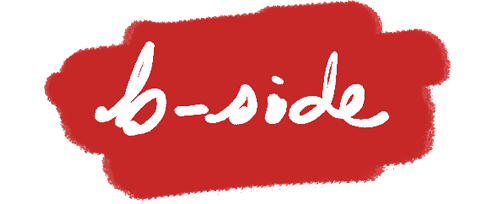Kelsey and I started playing Animal Crossing: New Horizons four days ago, and so far, this game has become a relaxing and fun escape during this time of crisis. The real time and season mechanism is much appreciated, as it gets rid of the grinding anxiety that other RPG-style games always make me feel. There’s only so much to do per day, you can’t make progress at some point until the next day. So in a way, it forces you to have a healthier attitude toward gaming, and it feels more like a part of my everyday reality than a black hole where time flows differently.
The game is similar to Breath of The Wild in terms of the openness of what you can do. If you think of BoTW as a “design your own adventure” type of game, this is more of a “design your own life” kind. While Zelda is filled with quests and plots, it leaves very little room for design and personality. New Horizons has practically no overarching plot or any sort of battle short of running away from wasps and spiders, but it is filled with tools, decorations, and resources that you can design and express your personality with. It’s like a Nintendo version of Minecraft but beginner- and family-friendly.
Of course, any games that focus on personality expression wouldn’t feel complete without a social element. Kelsey and I have been visiting our friends and hosting each other, and while the interaction is limited while multiple players join, the give-and-take is very raw. Nintendo poses nearly no limitation on what you can do in terms of trade and resource collection, so letting a stranger into your island is definitely a bad idea. In fact, unless a visitor is listed as a “best friend,” they can’t even use an axe or shovel to plunder to landscape. These social-realistic elements and synchronization with real time make the game feel more like an extension of my social life.
There’s also a console-sharing mode that caught me and Kelsey by a nasty surprise on the first day. Little did we know, you can only have one island per console, not even per copy of the game. So other user profiles on the same console will join as regular residents after the first player (called a “resident representative”). To our huge dismay, only the resident representative can make decisions on the development of the island and gets all the fun by unlocking events and stories for the first five days.
I joined as a regular resident after Kelsey started the game first, and my experience was nothing short of a subpar and confusing one. There was very little tutorial or direction on what I should be doing. A lot of that felt like Nintendo just expects the first player to walk you through the details in person, because after all, you’re sharing the same physical console. And most of all, we have to share the resources. Meaning, if she “accidentally” picked all the fruits, I will have nothing to eat for a whole day.
There was a huge amount of disappointment online, mostly of people who discovered this “feature” expected each user profile to have a separate island, the same behavior as nearly all other Switch games. Apparently, the Animal Crossing franchise has always done this, but previous consoles didn’t have multiple user profiles, so this was sort of a backward move.
As some people rightfully pointed out, Nintendo went from selling multiple 3DS handhelds to one Switch console per household. The multi-account system works so well on the Switch that Kelsey and I had no need for separate handhelds. So it’s possible that this artificial limitation is meant to force more console sales.
On the other hand, sharing an island is an interesting feature after all. You extend the family interaction to a virtual space and everybody has to learn good etiquettes and how to negotiate for space and resources. Whether you still consider that “gaming” is debatable, but I can certainly see families in more collectivist cultures appreciating that. Andrew Webster on The Verge wrote a comedic piece on the game “[tearing his family apart],” which is just so interesting from a product design point of view. We’re living in personal bubbles more than ever, so perhaps a game that forces players to be considerate with others reminds us of what’s less common nowadays. Still, it strikes me more as a cultural difference than anything else. This makes perfect sense in a country where you tip toe at home so your neighbors below aren’t disturbed.
The worst part from a technical point of view is the inability to back up the save data to Nintendo’s very own cloud that I already pay for, or transfer it to another console. “Due to the uniqueness of the save data” as Nintendo says, a “unique” backup and transfer feature will come out later this year. I guess if multiple users have to play the same map, it is unique to an extent. But this is a game that requires me to invest my time and emotions into, and the idea that all of that is shackled to a local storage is just unnerving.
Still, there is too much promise to the game and I really didn’t feel like compromising my experience and coordinating resources as an “individualistic American,” so I bought a Nintendo Switch Lite, and started my very own island full of cherries. Good that Target is extending its return policy during this time in case I get bored.
Is it worth it because Kelsey and I can play together at the same time? Definitely so far.
